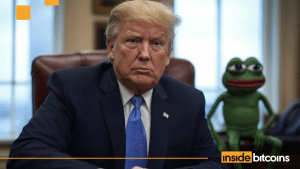Latest Crypto, Finance, and iGaming News
The information provided on Inside Bitcoins is for educational and informational purposes only and should not be considered financial, investment, or trading advice. Cryptocurrency markets are highly volatile, and investing in digital assets carries significant risk. No profits are guaranteed, and you may lose some or all of your investment. Always invest responsibly and only with funds you can afford to lose.









